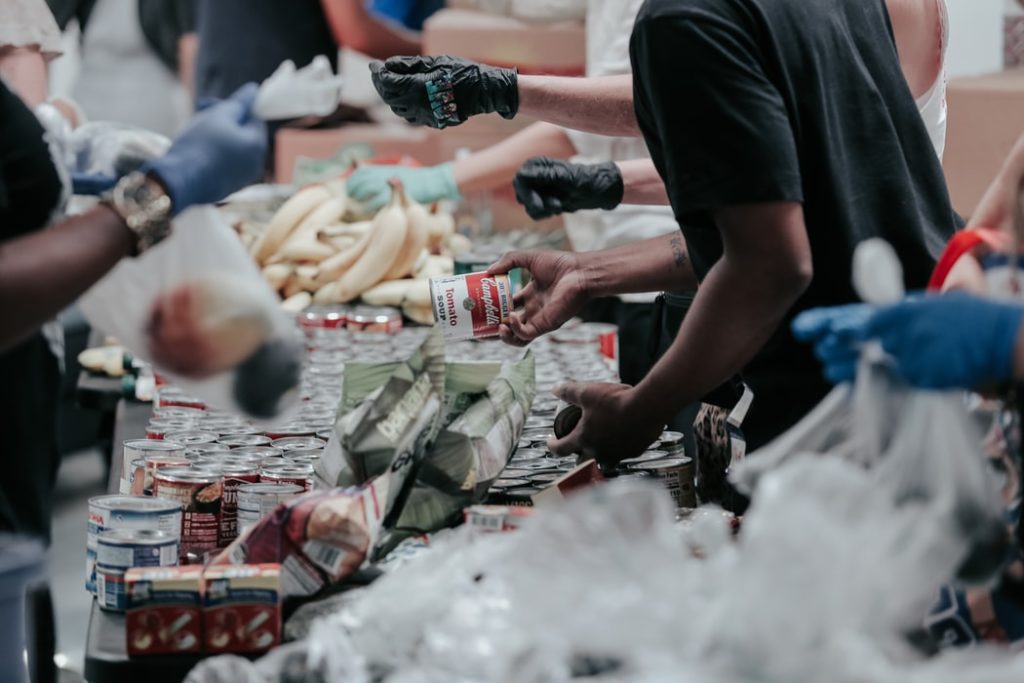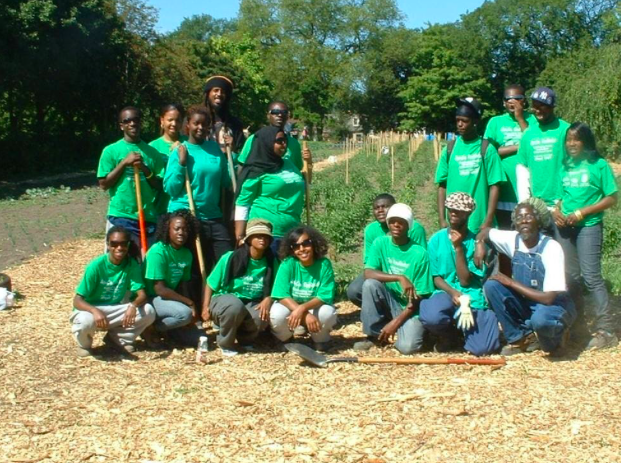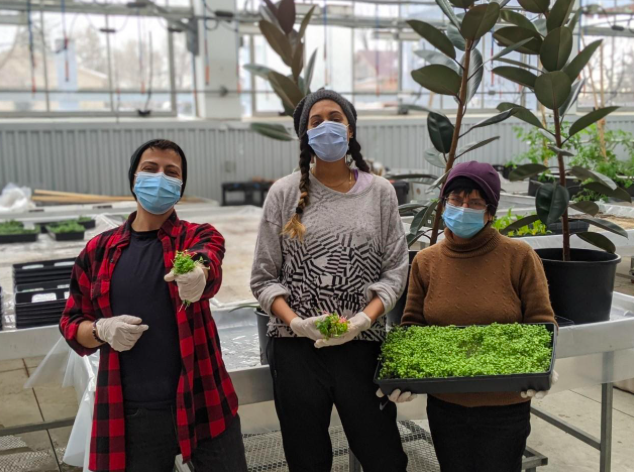Community food centres in Toronto offer potential roadmap for building a more equitable food system nationwide

When Toronto’s first food bank, The Stop, was founded in the 1980s it never intended to last. The founders believed that they were fulfilling a temporary need to get food to the city during a recession.
More than 35 years later, The Stop Community Food Centre is still a keystone of Toronto’s fight against food insecurity. Food banks became “this really ingrained part of our social fabric,” said Kate Fane, communications manager at The Stop.
The staff at The Stop quickly realized that their strength would never be in just handing out food, Fane said, because it doesn’t address the root causes of food insecurity..
When people think about food insecurity, they often think about donating to food banks, about food waste management and ways to divert leftovers to people who are hungry.
“I really want to flag this,” said Fane, “these are not long-term solutions and they cannot be the extent of the conversation around food insecurity.”
Over time, The Stop became a community food centre with gardens, community kitchens, classes in finance and nutrition, and a network of local support systems. The focus is on “providing the opportunity for folks to come together around food in ways that are dignified and collaborative,” said Fane.
In the late 1990s, Afri-Can Food Basket was coming to the same realization: that food insecurity could not be solved by handing out meals and non-perishables.
Through the purchasing of food in bulk and passing out food hampers, Afri-Can Food Basket has become the number one voice for Black food sovereignty in Canada. The nonprofit’s goal is “making sure we could grow our own food organically, and sustainably engage the community, especially young people in food justice,” said Anan Lololi, the executive director.
Black food sovereignty is “the right to healthy and culturally appropriate food, produced using ecologically sustainable methods, and the right to define one’s own food system,” explains Lololi. He believes that in order to achieve food sovereignty, and solve issues of food insecurity, communities need to grow their own food. In addition, they need to have access to education on food systems and policies.

“We don’t want to see more food banks,” said Dr. Monika Korzun, an instructor of the Sociology of Food and Eating at Ryerson University. “We want to move past those discussions. We want to see solutions that will address those underlying causes of why people are going to food banks. We want to start talking about policy changes.”
Addressing food insecurity and inequalities in the food system has been a long road in Canada — it wasn’t until 2019 that Canada even had a national food policy. This past February, the implementation of the Food Policy Advisory Council was announced. Although food insecurity has been an issue for decades, Korzun said COVID-19 seems to have pushed it to the forefront of the public agenda.
In response to the exacerbated food crisis caused by the pandemic, Afri-Can Food Basket launched Black Food Toronto (BFT), a food sovereignty initiative that seeks to address food insecurities faced by disadvantage, low income and undocumented members of Toronto’s African-Canadian and Black communities. Approximately one in five households are affected by food insecurity, according to the City of Toronto.
BFT partnered with the city to develop a set of policies forming a Black Food Sovereignty Plan, as part of the municipal unit tasked with confronting anti-Black racism.
“The plan advances food security for Black Torontonians. There would be a food centre, access to land, incubator kitchens and support for the development of the Black Food Sovereignty Alliance,” said Lololi. He hopes that their recommendations, which have been sent to city council, will be implemented as part of the city’s action plan to confront anti-Black racism.
Lololi looks forward to similar collaborations with the Food Policy Advisory Council.
“We are ready to work with the federal government,” he said. “The city could really be a model for the provincial government and the federal government for continuing to contribute to the development of our conversation around Black food sovereignty.”
The council’s role will be to advise the government on how to implement Canada’s food policy goals. The vision, outlined on their website, is that, “All people in Canada are able to access a sufficient amount of safe, nutritious, and culturally diverse food. Canada’s food system is resilient and innovative, sustains our environment and supports our economy.”
“A lot of people in the food sector and food activists are very optimistic that ultimately the (Council) will improve the food system rather than simply perpetuate the one that we have,” said Korzun.
Korzun said she is pleased to see the diversity of voices represented on the council, including people from all levels and avenues of the food system, from farming to academia to cooking to distribution.
All three experts the Ryersonian spoke with agreed their main concern is seeing the policy council’s recommendations implemented.
“A lot of people are hungry for change, and real change, so it’s a good thing the federal government did this, but they need to put their money where their mouth is,” said Lololi.
“What I would absolutely love in my heart of hearts,” said Fane, “would be for the Canadian government to say, ‘we’re going to make food a human right, we’re going to work with communities across the country and find ways that we can create these targeted food solutions, we’re going to explore ways that we can return land to Black and Indigenous growers so that they can feed their own communities.’”

This article may have been created with the use of AI tools such as
